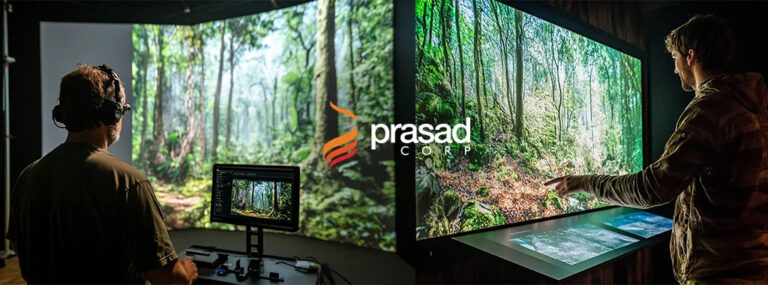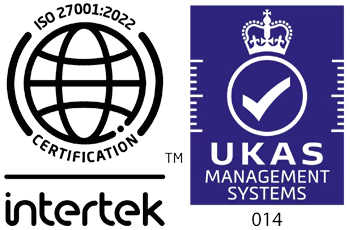Unlocking the Future: The Importance of 8K Film Scanning in Preserving Cinematic History
As technology continues to advance at an unprecedented pace, the film industry is evolving alongside it. Among the latest innovations is 8K film scanning, a groundbreaking method of preserving cinematic history that offers unparalleled detail and clarity. But what exactly is 8K film scanning, and why does it matter for the future of film preservation? Prasadcorp, a pioneer in film preservation and restoration, leads the industry with its state-of-the-art 8K film scanning technology. This blog explores the concept of 8K film scanning, its benefits, and why choosing this technology is crucial for maintaining the legacy of the silver screen.
Understanding 8K Film Scanning

8K film scanning refers to the digitization of film using an 8K resolution, which is approximately 7680 × 4320 pixels. This level of detail exceeds that of traditional 4K and HD resolutions, allowing for a remarkable capture of the film’s visual nuances. The process involves using advanced scanning equipment that can capture each frame of the film at this high resolution, resulting in a digital copy that is exceptionally rich in detail.
Why 8K Resolution Matters
- Unmatched Detail: The primary advantage of 8K film scanning is the astonishing level of detail it provides. This high resolution allows for a more precise reproduction of the original film, ensuring that every frame retains its artistic integrity. Fine textures, intricate patterns, and subtle colors are preserved in a way that lower resolutions simply cannot achieve.
- Future-Proofing Content: As display technology continues to advance, having content available in 8K ensures that films remain relevant in an ever-evolving landscape. While 4K has become the standard, 8K is quickly gaining traction in both home entertainment systems and cinemas. By digitizing films in 8K, filmmakers and preservationists can guarantee that their work will look stunning for generations to come.
- Enhanced Restoration Capabilities: For films that may have suffered from deterioration or damage over the years, 8K film scanning offers greater restoration potential. The higher resolution captures more detail, allowing for improved image manipulation and restoration processes. This means that films can be brought back to life with a level of fidelity that honors the original work.
The Importance of Choosing 8K for Film Preservation
Protecting Cultural Heritage
Film is a vital part of our cultural heritage, serving as a record of historical events, artistic expression, and societal values. As time passes, the physical mediums on which these films are stored, such as celluloid, can deteriorate, leading to the loss of invaluable stories and images. Through 8K scanning, Prasadcorp ensures that films are preserved in stunning detail, securing them for future generations and providing a rich, immersive window into our shared history.
Meeting Modern Audience Expectation
As audiences increasingly demand higher-quality viewing experiences, film preservation efforts must keep pace with these expectations. The rise of streaming services and home theaters equipped with 4K and 8K capabilities means that viewers have access to stunning visuals. By utilizing 8K film scanning for preservation, studios and archivists can deliver content that meets modern standards, ensuring that classic films continue to resonate with today’s audiences. Prasadcorp is at the forefront of this evolution, utilizing advanced 8K film scanning technology to preserve and enhance classic films to match modern standards.
A Sustainable Approach to Film Preservation
Preserving film through 8K scanning is not only about maintaining visual quality; it’s also about sustainability. Digital preservation reduces the need for physical storage and handling, minimizing the risk of further damage to fragile film stock. Moreover, digital files can be replicated and shared easily, promoting wider access to cinematic history without the risk of losing the original material.
The Future of Film Preservation with 8K
The transition to 8K film scanning is not just a trend; it represents a significant step forward in the preservation of cinematic history. As technology continues to develop, filmmakers, archivists, and preservationists need to embrace these advancements. The benefits of 8K film scanning extend beyond mere resolution; they encompass cultural preservation, audience engagement, and sustainability.
Conclusion: A Call to Action for Preservationists
In conclusion, 8K film scanning is a transformative technology that holds immense promise for the future of cinematic preservation. As custodians of film history, it is our responsibility to ensure that future generations can experience the art and stories that have shaped our culture. By choosing 8K scanning for film preservation, we are not only protecting our cinematic heritage but also honoring the artistry of filmmakers who came before us.
Embrace the future of film preservation with 8K technology and help safeguard the stories that define our collective memory. Prasad Corp is leading this movement, providing state-of-the-art 8K scanning technology to preserve films with remarkable precision. By choosing Prasadcorp’s 8K scanning for preservation, we not only protect our cinematic heritage but also honor the vision and artistry of filmmakers who paved the way.


